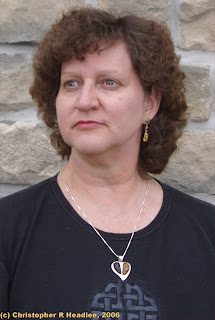In the world of Altadas, there are no more human births. The
Regime is replacing the unborn with demons, while the Resistance is trying to
destroy a drug called Hope that the demons need to survive.
Between these two warring factions lies Jacob, a man who profits from smuggling contraceptive amulets into the city of Blackout. He cares little about the Great Iron War, but a chance capture, and an even more accidental rescue, embroils him in a plot to starve the Regime from power.
When Hope is an enemy, Jacob finds it harder than he thought to remain indifferent. When the Resistance opts to field its experimental landship, the Hopebreaker, the world may find that one victory does not win a war.
Between these two warring factions lies Jacob, a man who profits from smuggling contraceptive amulets into the city of Blackout. He cares little about the Great Iron War, but a chance capture, and an even more accidental rescue, embroils him in a plot to starve the Regime from power.
When Hope is an enemy, Jacob finds it harder than he thought to remain indifferent. When the Resistance opts to field its experimental landship, the Hopebreaker, the world may find that one victory does not win a war.
~~~~~~~~~~~~~~~~~~~~~~~~~~~~~~
Excerpt:
The walls crashed down and the soldiers stormed in,
replacing bricks with leather boots and stones with clenched fists. The
dissonance died down, but the dust hung for endless moments, dimming the light
and stinging the eyes. Yet Jacob did not need to see; he knew why they were
here, what they had come for.
A figure,
tall and broad, stepped into view, his hair and uniform as black as the long
shadow he cast across the room. His fists were not clasped, but the anger was
still there, pouring out of the cracks and crevices of his crooked face.
Everyone could recognise him, even in darkness—especially in darkness.
Everyone knew his name. Domas. Yet not everyone knew what he was.
“You are
accused of smuggling amulets,” Domas said. He paced to and fro restlessly,
until the very floor began to recognise him. The light from the oil lamp
flickered on his face, creating and killing lots of little shadows. Those
shadows made him look inhuman, but under any other light he looked like
everybody else. Jacob remembered when he was first told about them by his
father. They are like you and I. They walk among us.
“What
evidence do you have?” Jacob asked, hoping they would not search the bookcase,
hoping they would not scour his soul.
Domas drew
close, seizing Jacob by the collar. “I don’t need
evidence.”
Jacob
parried Domas’ glower with his own. He felt like responding, like snapping or
biting, even though he knew it would not help. It would make him feel better
for the briefest of moments, and then, as the soldiers responded with their
fists, it would make him feel much worse. The words of his father haunted him
like a demon. In time they will replace us.
“Take him
to the Hold,” Domas barked to one of his commanders. He turned to leave, but
halted as something caught his eye. “Open your hand,” he ordered.
“It’s a bit
late to shake it.”
“Open your
hand,” Domas repeated. He did not need to give a warning. His tone gave enough.
Jacob offered his left hand, which was empty.
“A clown as
well as a smuggler,” Domas said. “Your other hand.”
Jacob reluctantly loosened his grip on the tiny bag of coils
he was holding, his all too meagre payment for smuggling an amulet into the
city. Domas snatched it from his grasp.
“You won’t
be needing this,” he said. “In the Hold, the rent is free.”
The soldiers seized Jacob and pulled him outside, where a
mechanised wagon waited, one of the many vehicles the Regime used to transport
its forces—and its prisoners.
In moments Jacob was hauled up and hurled into the back of
the warwagon, where he banged his head against the iron walls. He heard the
cogs and pistons start up, and he heard the roar of the furnace and the rhythm
of the wheels.
The smell of coal and smoke filled his nostrils and seeped
into his lungs, until finally he faded off into a halfway place between the
waking world and dreams, where he imagined what things might have been like if
the demons had not come here, if the Regime had not gained power.
~~~~~~~~~~~~~~~~~~~~~~~~~~~~~~
Dean F. Wilson was born in Dublin, Ireland in 1987. He started writing at age 11, when he began his first (unpublished) novel, entitled The Power Source. He won a TAP Educational Award from Trinity College Dublin for an early draft of The Call of Agon (then called Protos Mythos) in 2001.
He has published six novels to date, and is working on several others.
Dean also works as a journalist, primarily in the field of technology. He has written for TechEye, Thinq, V3, VR-Zone, ITProPortal, TechRadar Pro, and The Inquirer.
Author Links
Buy Links










